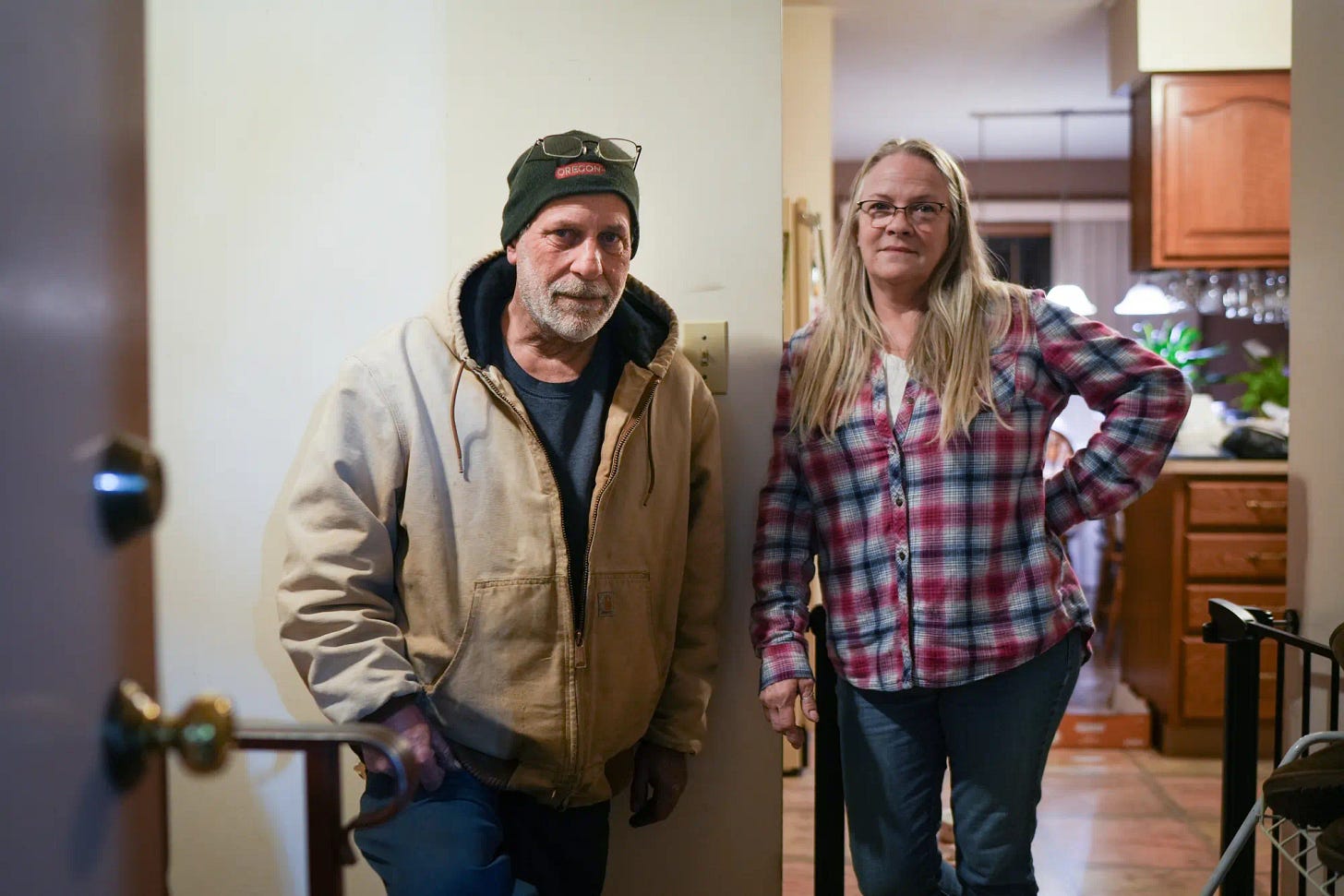They were wrongfully convicted. Now they’re denied compensation despite Michigan law.
The state can provide the wrongfully convicted compensation of $50,000 for each year of incarceration, but the law’s narrow criteria and confusion over eligibility leave former prisoners in the dark.
By Anna Clark, photography by Sarahbeth Maney, ProPublica
ProPublica is a nonprofit newsroom that investigates abuses of power. Sign up for Dispatches, a newsletter that spotlights wrongdoing around the country, to receive our stories in your inbox every week. This story was originally published by ProPublica.

After his murder conviction was overturned in 2020, Marvin Cotton Jr. checked into a Comfort Inn outside Detroit, ready to begin a new life after nearly two decades in prison.
Freedom, however, was frightening. Night after night, he awoke every 15 minutes or so, wrestling with the covers, wondering if he’d hallucinated it all. He kept the television on to remind himself he wasn’t in prison anymore. Its noise broke the first complete silence he’d experienced in half a lifetime, he said, which “scared the hell out of me.”
More than a month living at the hotel ate up his modest savings, Cotton said. His conviction still showed up in background searches, he said, so when he found a landlord willing to rent to him, he had to pay extra. Finding a job seemed impossible. To keep up with expenses, he took out high-interest loans.
But there was hope: Michigan offers $50,000 for each year a person is wrongfully imprisoned, thanks to the Wrongful Imprisonment Compensation Act, which took effect in 2017. For Cotton, it seemed to promise nearly a million dollars.
The conviction integrity unit in a prosecutor’s office had recommended Cotton’s release after finding that his trial was fundamentally unfair, marred by police misconduct that resulted in key evidence being withheld. His case represented a clear injustice, Cotton believed, and he quickly filed a claim in civil court, the first step in the WICA process.
That first year of freedom saw him celebrated in some quarters: The Detroit City Council gave him the Spirit of Detroit award, calling him a “wrongfully convicted hero,” and a state legislator issued a special tribute for his perseverance and dignity in the face of injustice.
But in court, rather than agreeing to Cotton’s compensation claim, the Michigan attorney general’s office exercised its right to challenge it. It urged the court to reject the claim because it did not fit neatly into the parameters set out by WICA.
“You fight for years to prove your wrongful conviction was actually wrong,” Cotton said. “And then immediately, when you step out, you pick up this new war, and you’re constantly trying to prove yourself again.”
As Cotton learned, WICA’s benefits are aimed at a narrow set of circumstances. Wrongfully convicted people qualify only if their cases are overturned based on “new evidence” showing that the person was not the perpetrator or an accomplice. And this new evidence must be “clear and convincing” — a higher standard of proof than for other civil claims. In practice, that can mean excluding cases undermined by suppressed or insufficient evidence, inadequate legal counsel, official misconduct, shifting science or other reasons why someone can be convicted of a crime they didn’t commit.
Michigan has the fifth-most exonerations in the country, according to the National Registry of Exonerations: 169 wrongful convictions in state courts since 1989, with an average of nearly 11 years of incarceration. Passed with bipartisan support, WICA was intended as a lifeline for former prisoners who were wrongfully convicted and to account, in part, for the harm done to them.
Of the 103 people who filed claims between 2017 and late 2023, about 68% received compensation, according to Jeffrey S. Gutman, a clinical law professor at George Washington University who researches compensation statutes across the country.
Advocates and people who were wrongfully imprisoned have said that the money often makes a huge difference at an impossibly vulnerable time. Many are rebuilding with no family, no home, no job prospects, no driver’s license, no resources to navigate trauma.
But in many ways, WICA has fallen short of early expectations, causing conflict in the courts while creating further uncertainty for people in the aftermath of a grave injustice.
“I did not imagine how actually harmful this law was going to be,” said Marla Mitchell-Cichon, counsel to the Innocence Project at Thomas M. Cooley Law School, who was part of the long campaign to pass WICA.
Advocates have urged the Legislature to update and clarify the law. And when disputes over compensation have come before the state Supreme Court, two justices, in sometimes pointed language, have expressed frustration with WICA.
“I don’t like administering legal rules that I can’t explain to the people they impact,” wrote one of the justices in a concurring statement in a 2022 case in which a wrongfully imprisoned man was shut out entirely. “Please fix it, legislators.”
Citing another case in which compensation was denied, a state commission has also flagged the law for review.
But, under the leadership of both parties, the Legislature has yet to do so.
Rep. Bryan Posthumus, the Republican floor leader, said in a statement emailed to ProPublica that he believes the state should compensate wrongfully imprisoned people for their lost freedom. “While the legislature has not taken up a formal review of WICA,” he said, “it is important that continuing reviews take place to ensure that the program works as intended. Ultimately, a review of WICA will be up to the Speaker of the House.”
Speaker Joe Tate and Senate Majority Leader Winnie Brinks, both Democrats, did not respond to requests for comment. Sen. Stephanie Chang, a Democrat who worked to pass WICA and sits on the commission that recommended its review two years ago, told ProPublica in an email that she and Democratic Rep. Joey Andrews are going to partner on legislation to address gaps in WICA.
The Michigan attorney general’s office said it evaluates claims and challenges them when it doesn’t believe they meet the law’s criteria. At any point, the attorney general’s office can offer a settlement as a compromise: a portion of what the law seemed to promise.
The Legislature drew lines based on “clear and convincing new evidence of innocence,” said Robyn Frankel, an assistant attorney general who directs the office’s conviction integrity unit and head of the section responding to WICA claims.
“Sometimes, personally, we may not agree with it or like it,” she said. “But that’s our job: to just apply the statute.”
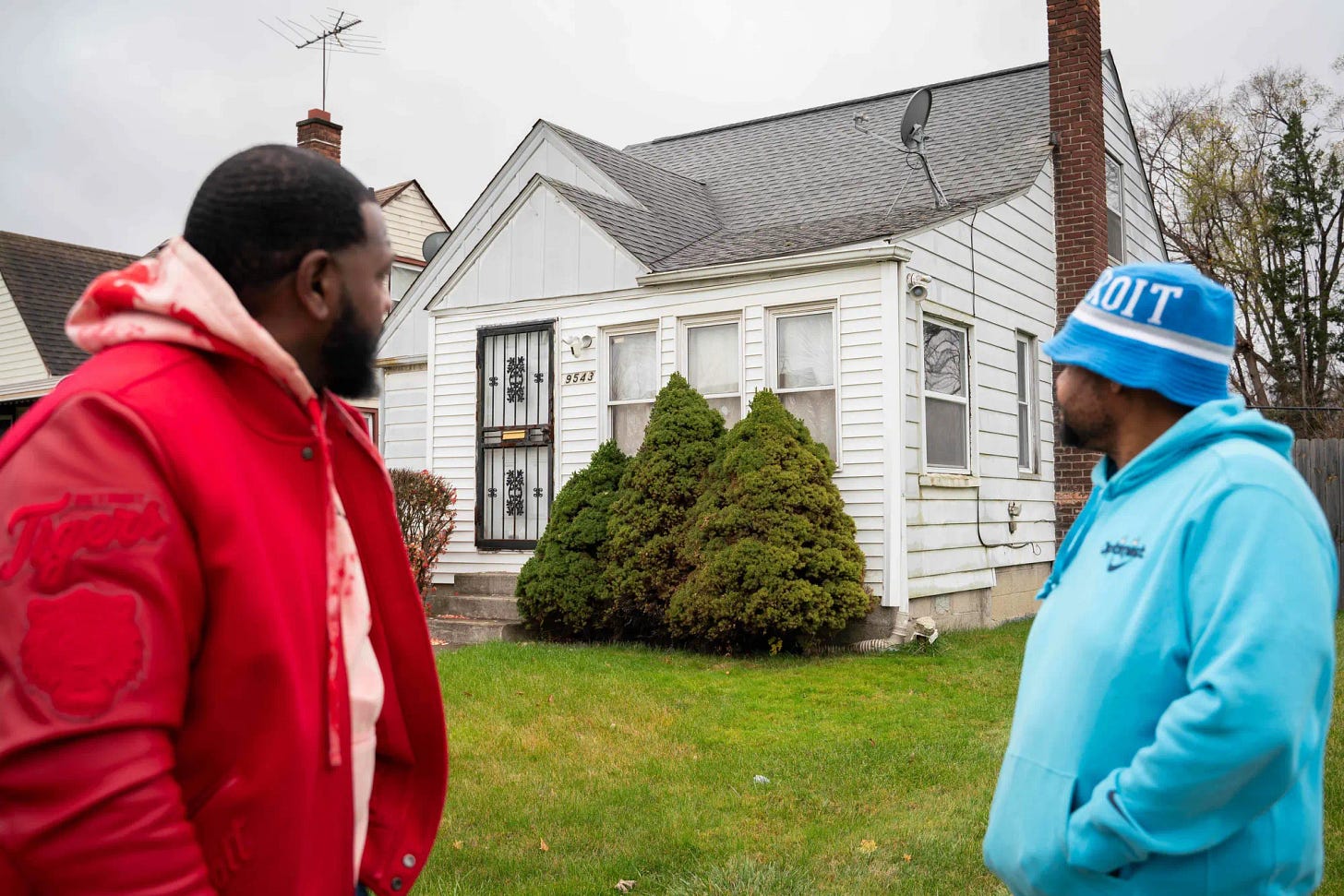
Dennis Tomasik knows there’s no getting back the lost years of his life.
In 2007, at age 43, he was sent to prison for sexual abuse of a minor. Tomasik had worked as a tool and die engineer at an automotive equipment supplier outside Grand Rapids, the sole breadwinner for his wife and two children. Without his wages, the family barely skirted financial disaster.
His wife, Kim, went to work, first stocking shelves and then running machinery for a company that builds buses. Neighbors pitched in, she said, quietly passing along enough cash to make a mortgage payment. Dennis’ old co-workers slipped gift cards in her hands. When the family could no longer afford the legal costs, his appellate lawyers, believing in Tomasik’s innocence, continued on pro bono, winning a reversal from the state Supreme Court. To pay the bond before the second trial, Kim Tomasik said, the family and two relatives leveraged their houses.
At Tomasik’s retrial, his new trial lawyers focused on unraveling the story told by his accuser, who made the allegations after being arrested for larceny and acknowledged that he hoped his claims would help him avoid jail. New testimony, counseling records, work schedules and receipts upended the prosecution’s case. The second jury acquitted Tomasik in less than 30 minutes.
Tomasik had been incarcerated for about nine years — nearly a decade of lost wages and retirement savings, as well as missed opportunities to keep pace with advancing technology in his field. In 2017, he filed a WICA claim.
But state officials contested it, and the courts backed them up. That included the state Supreme Court, which, in reversing his conviction earlier, had cited evidentiary errors at trial rather than the newly uncovered evidence.
Chief Justice Bridget McCormack, in a concurring statement on the compensation case denial in 2020, noted, “Had he brought only the new-evidence questions to this Court, and not the other trial errors, he’d likely be eligible for WICA compensation.”
McCormack previously served as co-director of the Michigan Innocence Clinic at the University of Michigan. Her statement, joined by Justice Megan Cavanagh, questioned “whether this result is consistent with the Legislature’s intent” and urged lawmakers to consider whether it intended the statute to exclude people like Tomasik.
Now 60, Tomasik said he has nothing saved for retirement. He and his wife are on Medicaid, and he earns money by doing repair jobs on snowmobiles and dirt bikes. “I live at the lowest means I can possibly live on and survive,” he said.
Compensation wouldn’t make up for the terror he experienced in prison, Tomasik said, or for missing his children’s graduations, his son’s wedding and his mother’s deathbed. But, he said, “I’d love to get compensated at least something so I don’t got to worry about what I have to sell to pay my property taxes every year.”
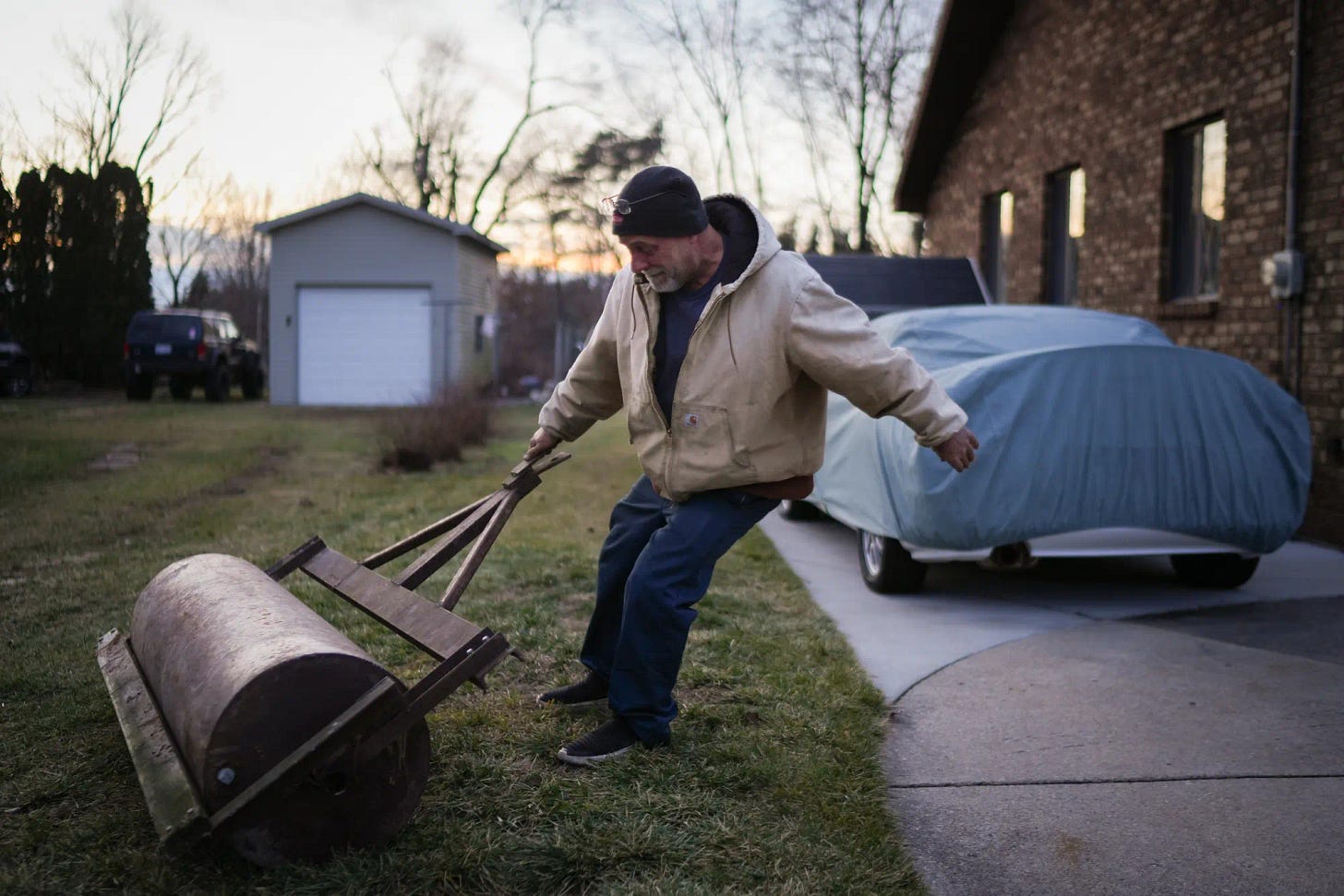
Across the country, despite broad acknowledgement that wrongfully convicted people are entitled to some financial help, there is no uniform standard for how governments should compensate them.
Thirty-eight states and the District of Columbia have compensation statutes for people who were wrongfully imprisoned, offering varying amounts of money with a range of qualifying criteria.
Wisconsin passed one of the earliest statutes, in 1913, but it has one of the stingiest policies, typically allowing claims of no more than $5,000 per year and no more than $25,000 in total, regardless of the number of years served. Conversely, Texas offers $80,000 for each year of wrongful imprisonment, plus additional compensation for any years spent on parole or registered as a sex offender. But the law also sets up impediments to filing federal lawsuits — legal efforts that can result in large judgments. (Other states have similar provisions that limit the ability to receive both statutory compensation and money from civil suits.)
Some states have severe restrictions, excluding people who pleaded guilty, for example, or those with previous felony convictions. In Missouri, only DNA-based exonerations are eligible.
In Michigan, Steven Bieda, WICA’s lead sponsor, hoped the Legislature could create one of the nation’s more supportive statutes.
But it was narrower than originally envisioned, with the strict “new evidence” requirement and a high standard of proof. Bieda, now a district judge, said WICA was a compromise with lawmakers who were concerned that claims would relitigate cases based on facts and evidence that had already been assessed by courts. Many worried that someone who was actually guilty would benefit from it. The requirements were meant to tailor the law to people with clearly exculpatory cases, he said.
The law, which took more than a decade to pass, was a “decent start,” but it’s “poorly written,” said Wolf Mueller, an attorney who said he’s represented at least 20 WICA claims.
“It’s leaving a lot of folks out who are wrongfully convicted, and they are not going to get compensation under the statute the way it’s written,” Mueller said.
A few years ago, the Michigan Legislature passed bills that extended WICA’s filing window for people exonerated before the law passed and exempted WICA claims from the standard notification deadlines and statute of limitations.
But it has never reviewed the substance of the law’s eligibility requirements. That leaves the courts to wrestle with how to apply them.
Two years ago, the Michigan Law Revision Commission, which advises the Legislature on potential defects and anachronisms in state law, called attention to the lack of clarity in WICA. Quoting from McCormack’s statement in Tomasik’s case in its annual report, it encouraged the Legislature to review WICA but didn’t recommend specific changes.
In 2022, Charles Perry, who’d been exonerated for sexual assault, was shut out entirely after he filed for compensation. Judges acknowledged that there was in fact new evidence of innocence: testimony from witnesses Perry’s lawyer never called in his criminal trial. But because the official basis of his overturned conviction was prosecutorial misconduct and ineffective counsel, not the new evidence, an appeals court said its hands were tied. The state Supreme Court declined to take his case. Perry got nothing.
In one of her last acts before retiring from the court, McCormack again exhorted the Legislature to take action.
In Tomasik’s case, ”I asked the Legislature to ‘consider whether it intended to exclude individuals such as the plaintiff—call them ‘new evidence plus-ers,’—from the WICA,” McCormack wrote in a concurring statement, again joined by Cavanagh. “Had it done so, Mr. Perry wouldn’t be here.”
The fact that Perry doesn’t qualify “because he suffered legal error in addition to the undiscovered evidence of his innocence is a rule of decision I would be hard pressed to justify," she wrote.
Her words meant something to Perry. “She literally put it on the record,” he said from his home in Florida. “She agreed with our case, but because of the way the law was structured, she had no alternative other than to rule against me, even though she felt in her heart that I was wronged.”
Had his claim gone through, Perry said, he would’ve saved the money for his two daughters. “They’re the ones that lost,” he said.
At the start of 2024, the Legislature still hasn’t acted, and yet another case is before Michigan’s Supreme Court — the fifth in six years. Besides Tomasik’s and Perry’s claims, there was a case that established that WICA won’t cover time spent in pretrial detention. Another found that “new evidence” need not be “newly discovered.” And in the pending case, lawyers are again arguing about what kind of evidence the law requires.
A recent analysis by Gutman found that 71 compensation claims in Michigan have been granted, 24 have been denied and eight are pending. Three people who were wrongfully imprisoned haven’t yet filed claims but are within the three-year window to do so. According to a recent report from the attorney general’s office, the state has paid out about $50 million through WICA as of late 2023.
For Gilbert Poole, money from the compensation fund was life-changing. In 2021, at age 56, he was freed from prison after serving nearly 32 years of a life sentence for murder. His conviction was overturned after his case was investigated by the Cooley Innocence Project and the attorney general’s conviction integrity unit.
Poole’s claim was approved within weeks of his filing, and he said he received the money — nearly $1.6 million — within six months. “Without anybody opposing me, it went through pretty quick,” he said.
That mattered because Poole was starting from scratch. He’d spent most of his life behind bars. He’d never used a cellphone. His parents had died. The only people he knew outside prison were lawyers and clergy who supported his case. But, Poole said, “you can’t really call them at 3 a.m. and say, ‘Hey, I can’t sleep,’ or ‘I’m having a panic attack,’ you know?”
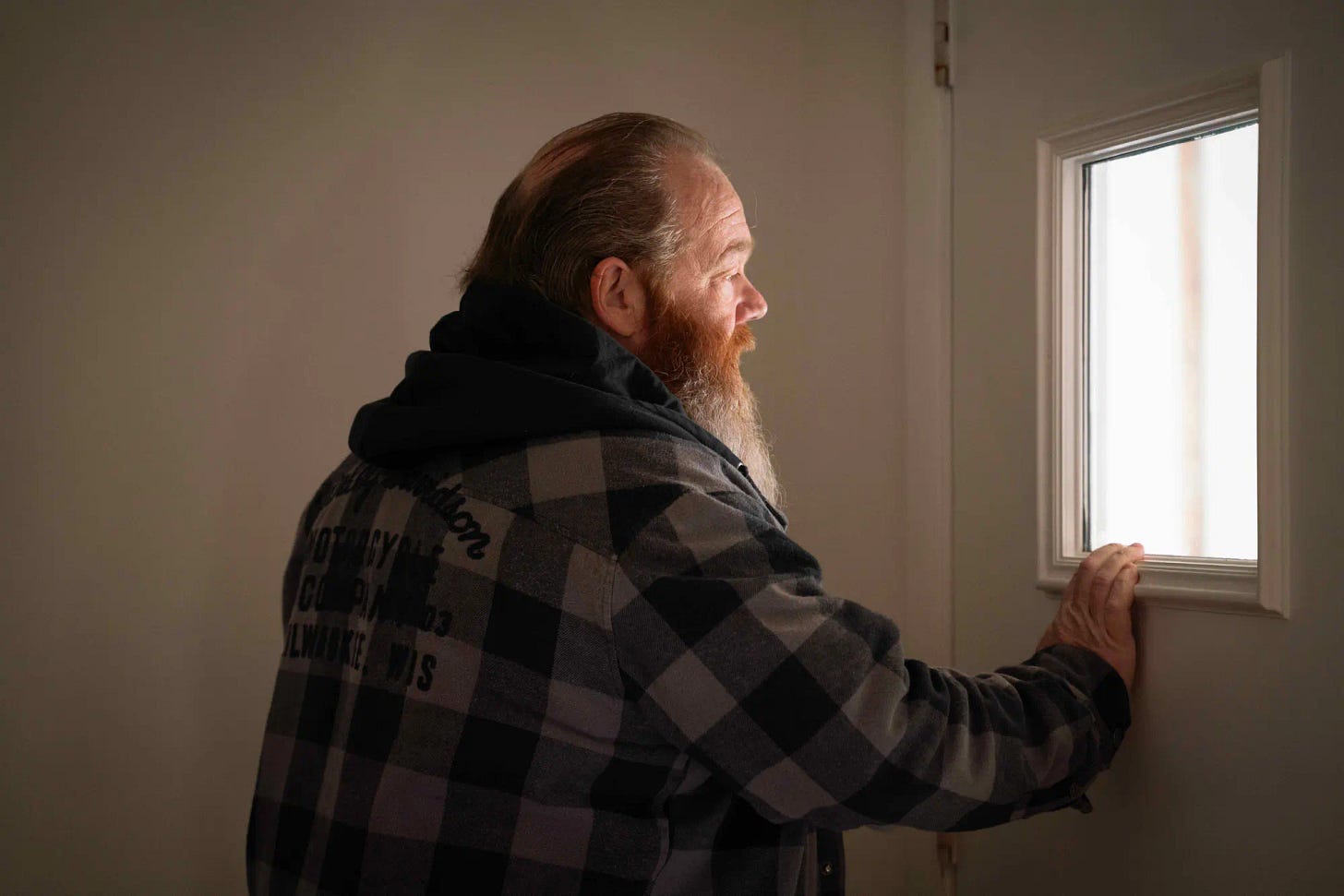
Poole bought a house outside Lansing that he’s renovating himself. He built a pole barn for tinkering, maybe even a place to start his own business. He bought a GMC Acadia. He meets with a therapist. And he’s saving and investing as best he can, he said, in hopes of making up for decades of lost wages, retirement savings and Social Security.
Poole’s case moved unusually quickly. The time between the filing of a claim and the conclusion of their case ranges between one month and 52 months, according to a 2023 study by Gutman. The average is 16.7 months.
For people trying to rebuild their lives, every day counts.
“It’s just heartbreaking to know that it can be so difficult to get even the most basic necessities when you come home from a wrongful conviction,” said Kenneth Nixon, who spent nearly 16 years in prison for murder before his conviction was overturned in 2021. Less than a year after he filed his WICA claim, the court of claims ordered the state to pay him about $515,000 in compensation, less than he had sought.
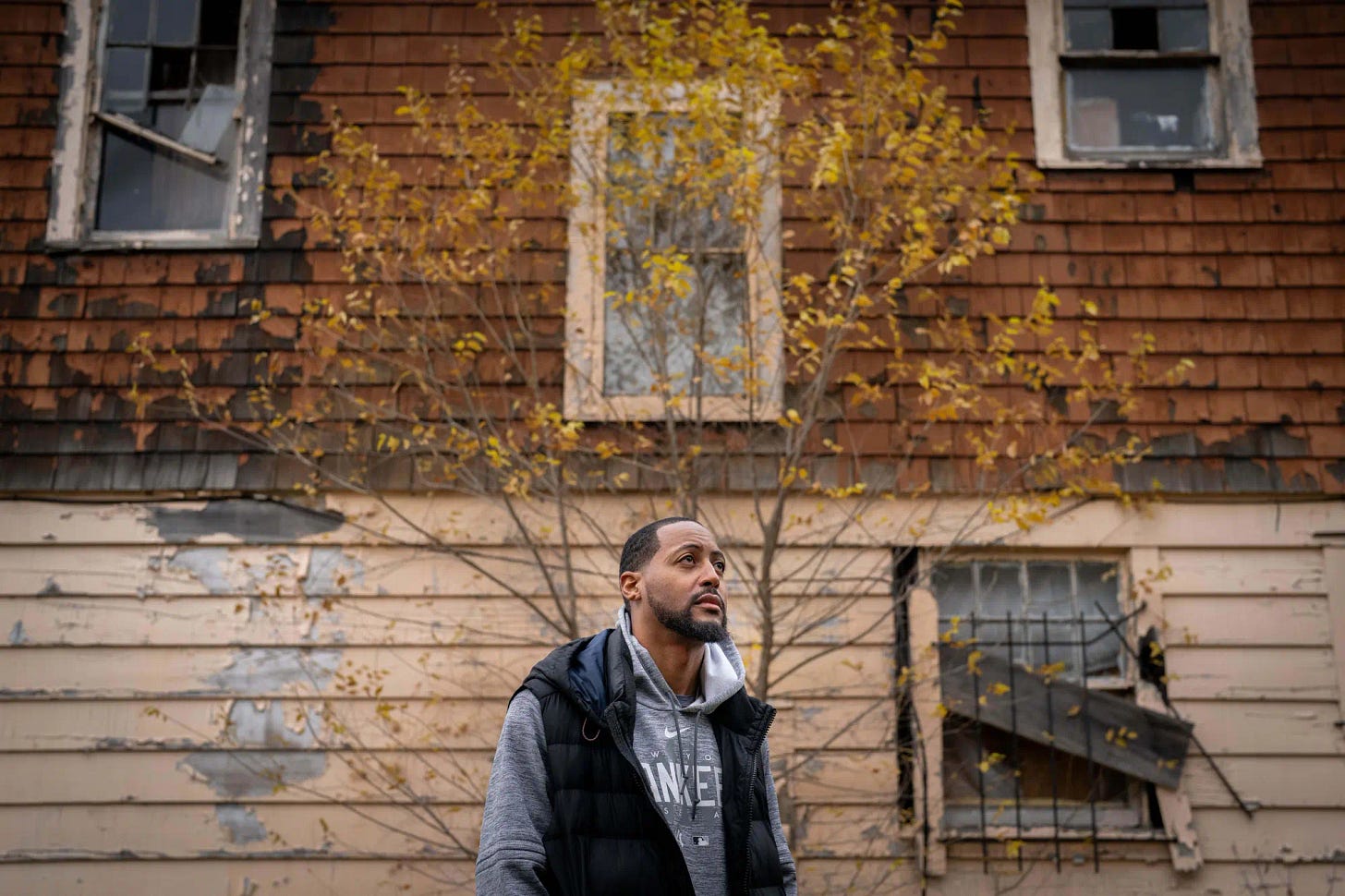
Today, Nixon is the president of the Organization of Exonerees, a nonprofit that helps fill the gaps for other wrongfully convicted people by providing everyday essentials like transportation, T-shirts and toothpaste.
Cotton’s compensation case, filed while he was still at the hotel, took three years.
In seeking to block his claim, the attorney general’s office argued that Cotton could not show that clear and convincing new evidence established his innocence of the crime, and that he wasn’t an accomplice or an accessory. It noted that he was at the scene, a house where drug dealing took place.
Last July, a court of claims judge sided with Cotton in rejecting the state’s argument. No physical evidence tied Cotton to the crime, the judge wrote, and witnesses had changed or disavowed their earlier testimony.
“The WICA does not require that a plaintiff show that he was innocent of all crimes; he only must show that he was innocent of the crimes actually charged or for which he was convicted,” wrote Judge Douglas Shapiro.
Before long, the state offered Cotton a settlement: about $630,000, Frankel said.
Addressing the state’s approach to settlements, Frankel said, “We’re trying to follow the statute, but we’re also trying to do the right thing.”
While Cotton felt he had a good case for the full amount, he said, more years fighting could “rip my life apart.” He agreed to the settlement.

He puts a premium on stability. He has a home now in suburban Oakland County. He got married. His wife works as a banker, and he gets paid for speaking events about his experience. To bring in another stream of income, he published a book, “Better, Not Broken.”
Much of the compensation money, he said, will go toward the high-interest debt he racked up over the last three years. And all the money in the world won’t take away the fear that still wakes him up at night. He wonders, could it happen again? Will someone try to set him up?
Just in case, he said, he keeps “bags of receipts” that document his whereabouts. It might seem paranoid, he knows. But if he ever faces another accusation, one of those little pieces of paper just might prove his innocence.

